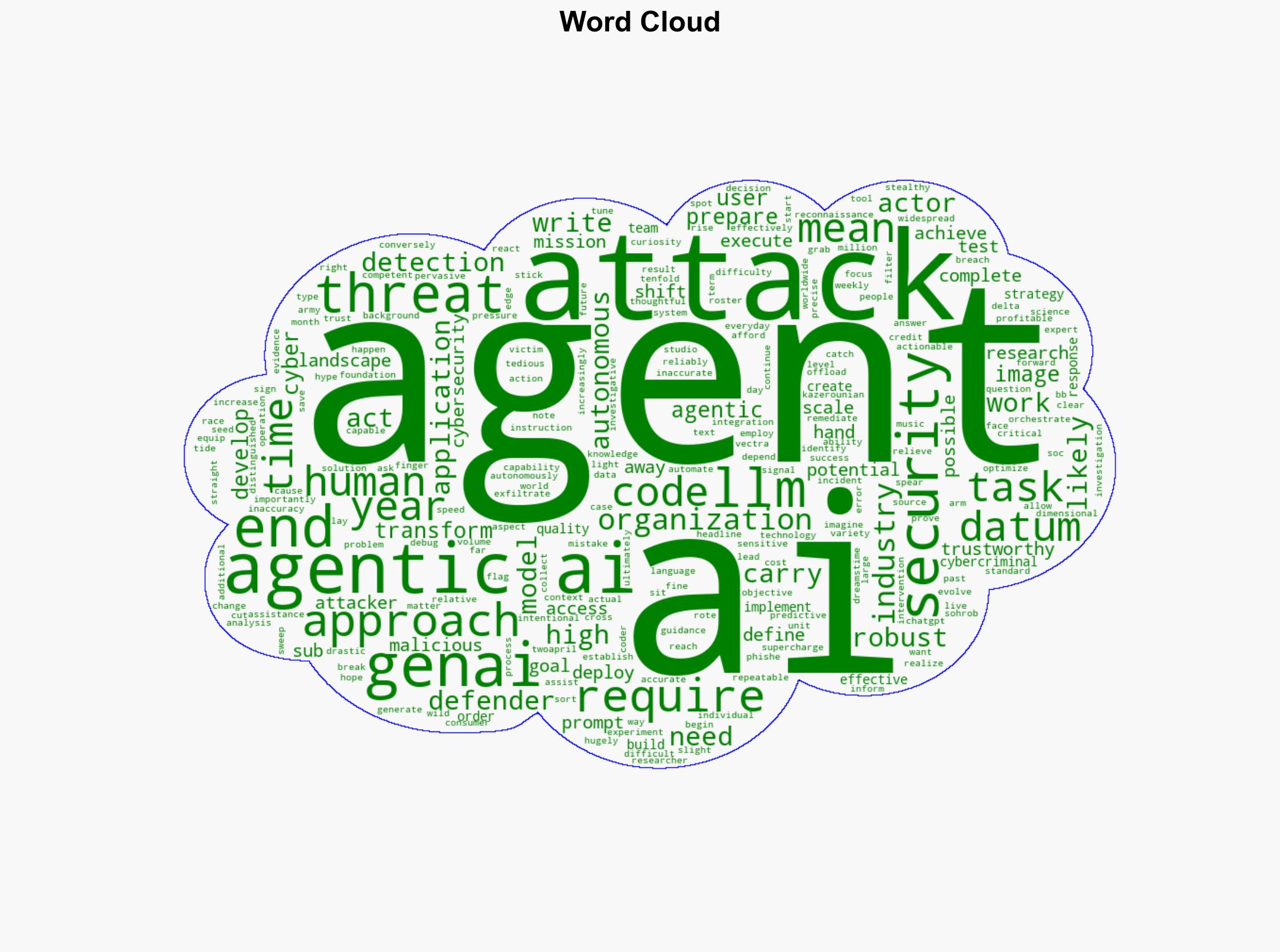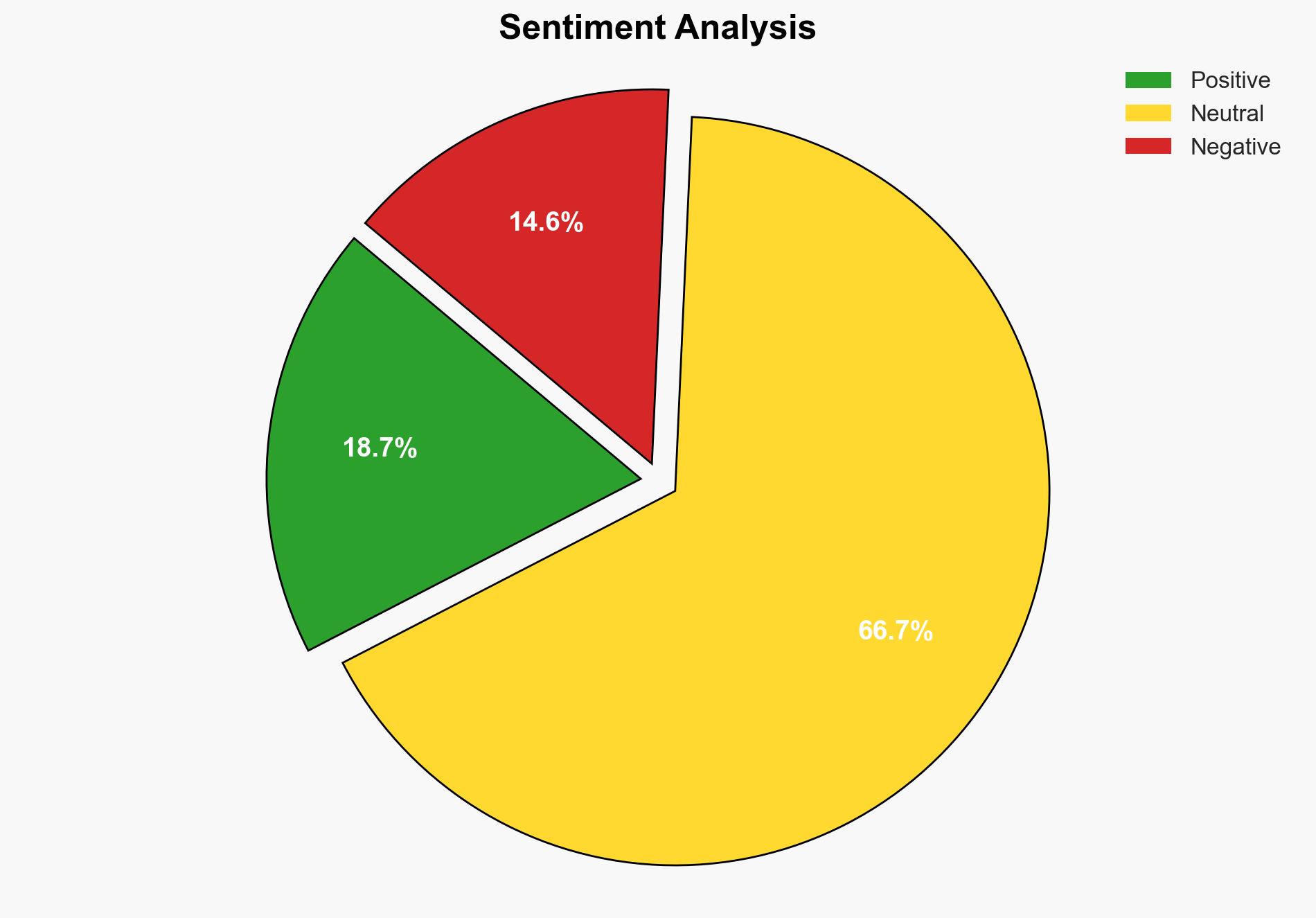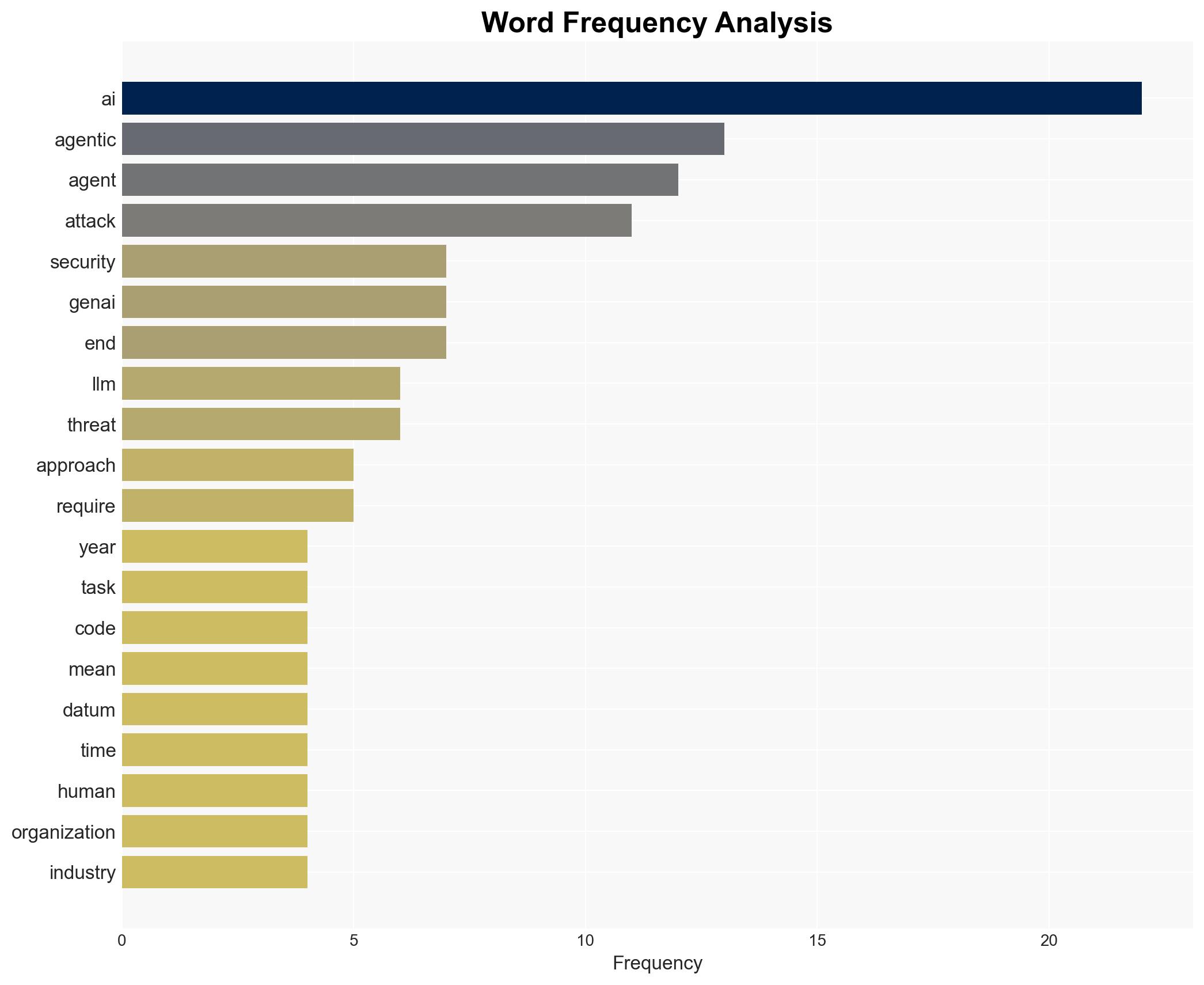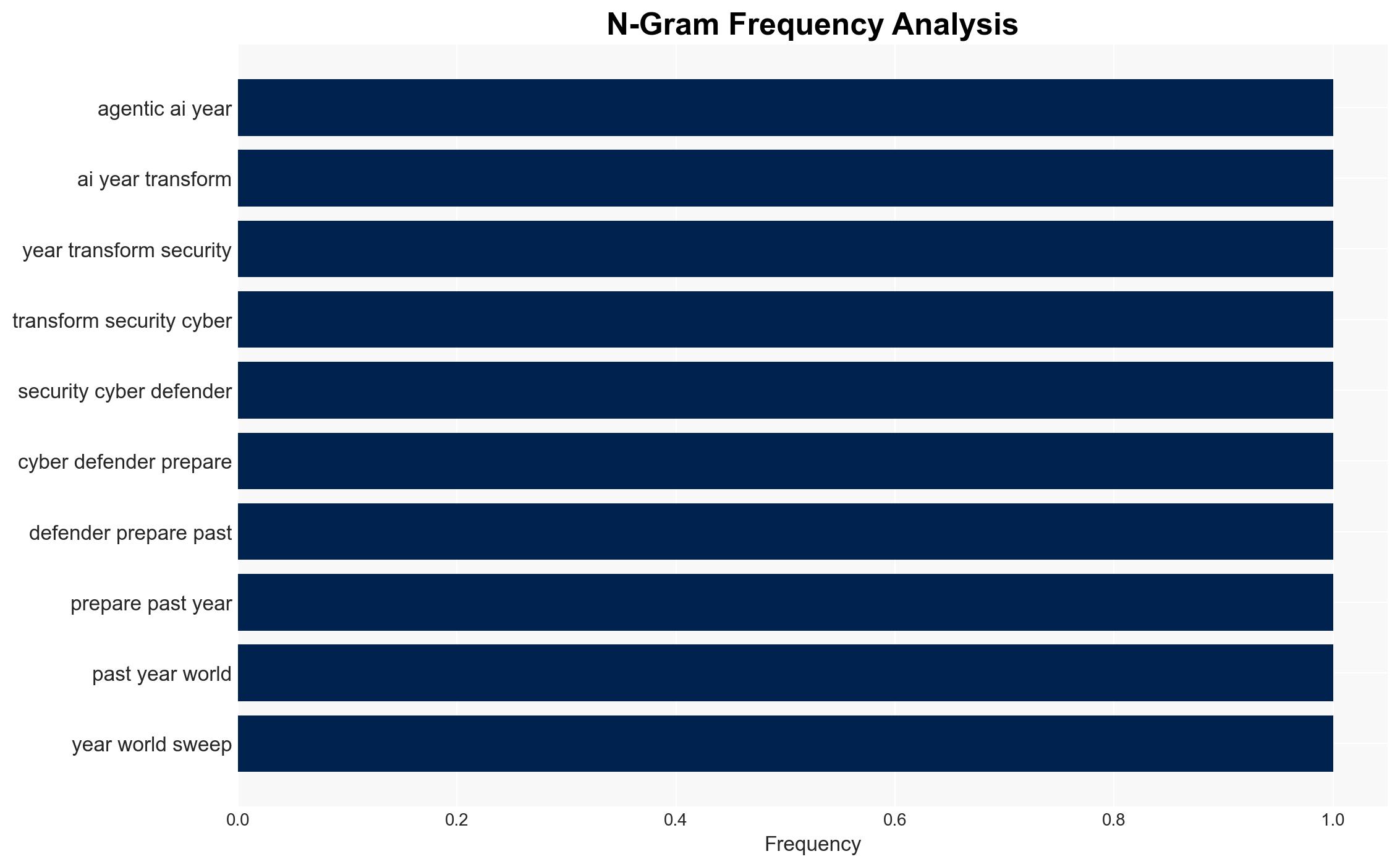Agentic AI might take years to transform security but cyber defenders must prepare now – BetaNews
Published on: 2025-03-30
Intelligence Report: Agentic AI might take years to transform security but cyber defenders must prepare now – BetaNews
1. BLUF (Bottom Line Up Front)
The rise of agentic AI presents both opportunities and challenges for cybersecurity. While the full transformation of security landscapes by agentic AI may take years, immediate preparation is essential. Cyber defenders must adapt to evolving threats as attackers leverage AI for more sophisticated and autonomous attacks. Implementing agentic AI in defense strategies can enhance threat detection and response capabilities.
2. Detailed Analysis
The following structured analytic techniques have been applied for this analysis:
General Analysis
The development of agentic AI, characterized by its ability to autonomously execute complex tasks, is poised to revolutionize cybersecurity. Unlike traditional AI models, agentic AI can break down high-level objectives into sub-tasks, enabling more robust and accurate outcomes. This capability could be exploited by cybercriminals to automate attacks, potentially increasing the scale and stealth of cyber threats. However, the technology is still in its nascent stages, with fully autonomous malicious AI agents requiring human intervention for complete attack execution.
3. Implications and Strategic Risks
The integration of agentic AI into cyber operations poses significant risks, including enhanced attack capabilities for cybercriminals and increased difficulty in detecting and mitigating threats. The potential for large-scale data breaches and sophisticated spear-phishing attacks could threaten national security, economic stability, and organizational integrity. As threat actors experiment with AI-driven attacks, the cybersecurity landscape may experience a paradigm shift, necessitating advanced detection and response strategies.
4. Recommendations and Outlook
Recommendations:
- Invest in research and development of agentic AI for defensive purposes to stay ahead of potential threats.
- Enhance regulatory frameworks to address the ethical and security implications of AI in cybersecurity.
- Implement organizational changes to integrate AI-driven threat detection and response systems.
Outlook:
In the best-case scenario, organizations successfully integrate agentic AI into their cybersecurity frameworks, significantly reducing response times and improving threat mitigation. In the worst-case scenario, cybercriminals exploit agentic AI to conduct large-scale, autonomous attacks, overwhelming existing defenses. The most likely outcome involves a gradual adoption of agentic AI by both defenders and attackers, leading to an ongoing arms race in cybersecurity capabilities.
5. Key Individuals and Entities
The report does not mention specific individuals or organizations by name. However, it emphasizes the importance of collaboration among cybersecurity professionals, AI researchers, and policymakers to address the challenges and opportunities presented by agentic AI.




